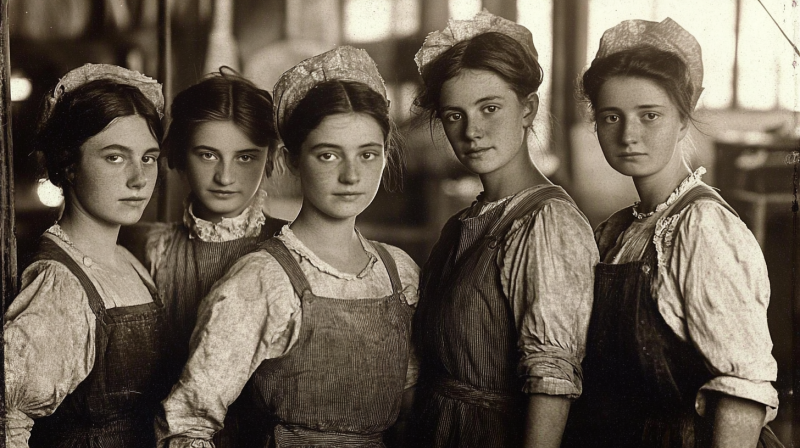The Mill Girls of Lowell

Here is a quote that Chomsky likes to use, purportedly written by a female textile factory worker in the early 19th century:”
When you sell your product, you retain your person. But when you sell your labour, you sell yourself, losing the rights of free men and becoming vassals of mammoth establishments of a monied aristocracy that threatens annihilation to anyone who questions their right to enslave and oppress. Those who work in the mills ought to own them, not have the status of machines ruled by private despots who are entrenching monarchic principles on democratic soil as they drive downwards freedom and rights, civilization, health, morals and intellectuality in the new commercial feudalism.
I haven’t been able to confirm the source of Chomsky’s quote, but you can see from their newspaper that the contributors were actually that smart. Anything from this newspaper could be the mistaken for the writing of a modern professor at a state university, but it was, in fact, written by some young woman working twelve hours per day in a dirty and dangerous textile mill.
The first generation of textile mill workers was dominated by school teachers (you must wonder why). They set the stage for mill girl culture. As avid readers, they encouraged and taught the farm girls in their ranks. Workers often hid books in their aprons, just for the opportunity to read them for minutes or seconds at a time. They got library cards, and they used them. They attended lectures at the local athenaeum, and organised their own reading groups. Despite their 72 hour work week and forced church attendance, these workers somehow found time to establish and operate a literary magazine as well.
Not surprisingly, these women led the earliest industrial strikes.
Bear in mind that ‘The Communist Manifesto‘ was published in 1848 and ‘Das Kapital‘ was published in 1867. These mill girls were writing from the 1830s to the mid-1840s. They were way ahead of Marx.
Human history has very few shining moments. It is rare that poor people — disadvantaged in nearly every way — strive for education, understanding, and fair play. The mill girls were famous even in their own time, receiving visits from authors, academics, and politicians. Utterly phenomenal. If they could do it, with so many disadvantages, we can do it.
